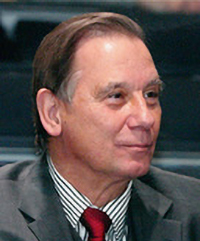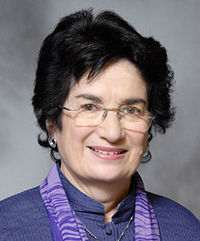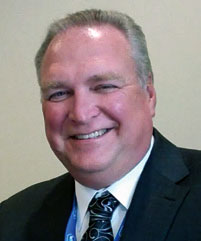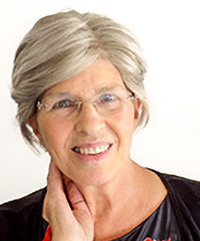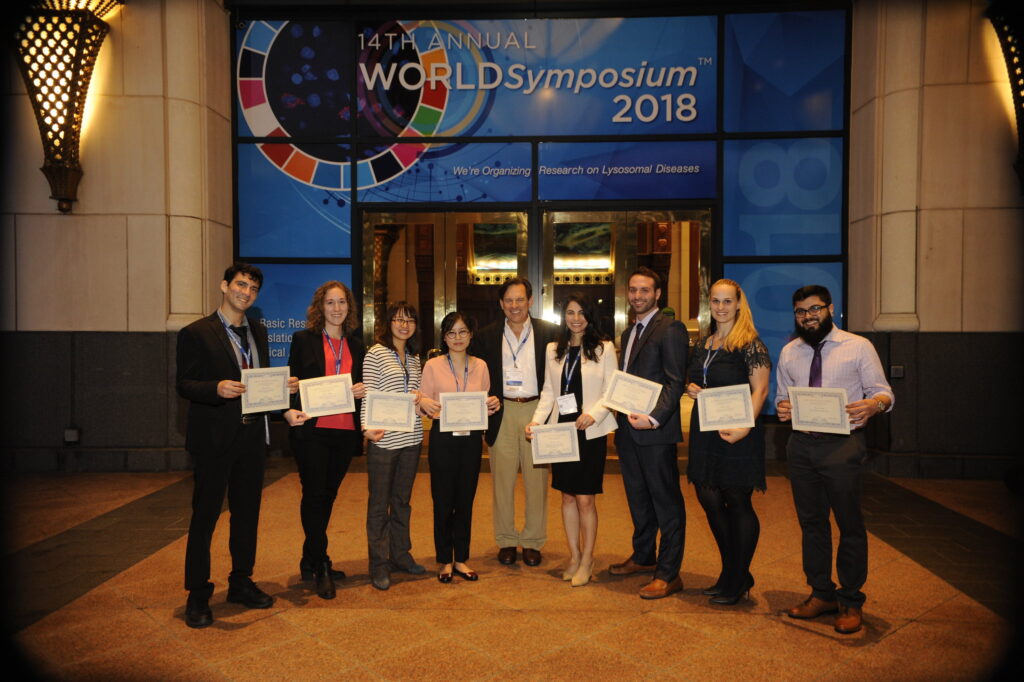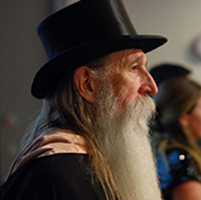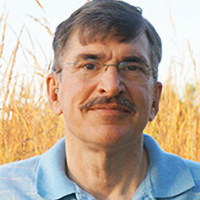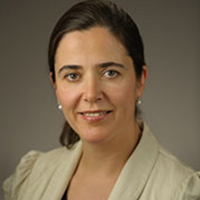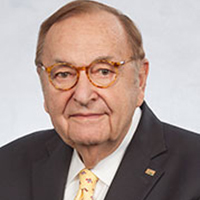2017 PATIENT ADVOCATE SHOWCASE
Batten Disease Support and Research Association
BDSRA is dedicated to funding research for treatments and cures, providing family support services, advancing education, raising awareness, and advocating for legislative action. BDSRA is now the largest support and research organization dedicated to Batten disease in North America.
Cure Sanfilippo Foundation
Cure Sanfilippo Foundation is a 501c3 nonprofit whose mission is to advocate for and fund research directed towards a cure or treatment options for children with Sanfilippo Syndrome, a rapidly degenerative and terminal disease, currently with no cure or treatment.
EveryLife Foundation for Rare Diseases
The EveryLife Foundation for Rare Diseases is dedicated to accelerating biotech innovation for rare disease treatments through science-driven public policy. We can do more with the science we already have and bring life-saving treatments to millions of people suffering from rare diseases.
Global Genes
Global Genes® is a leading rare disease patient advocacy organization. Our mission is to eliminate the challenges of rare disease. We build awareness, educate the global community, and provide critical connections and resources that equip advocates to become activists for their disease.
Jonah’s Just Begun
Jonah’s Just Begun – Foundation to Cure Sanfilippo Inc. is a 501(c)3. JJB raises funds and then distributes them to academic researchers focused on Sanfilippo Type C. We have two goals: first, to drive the science that will ultimately lead to a cure for Sanfilippo Type C; and second, to raise awareness for all rare diseases. We also empower and encourage others affected by rare diseases to advocate for cures.
LAL SOLACE
The SOLACE organization (Support Organization for LAL Deficiency – Advocacy, Care and Expertise) was created to bring LAL Deficiency patients and families together to share experiences, knowledge and compassion. SOLACE stands for Support Organization for LAL Deficiency – Advocacy, Care & Expertise. The SOLACE organization was created by parents whose children were diagnosed with Wolman Disease who realized there was a need for a caring support community.
MLD Foundation
We C.A.R.E.™ – Compassion, Awareness, Research & Education for metachromatic leukodystrophy (MLD). Global footprint. Very active in Rare Disease policy & awareness, and newborn screening at federal, state & global levels.
National MPS Society
The National MPS Society exists to find cures for MPS and ML. We provide hope and support for affected individuals and their families through research, advocacy and awareness of these devastating diseases.
National Organization of Rare Disorders (NORD)
The National Organization for Rare Disorders (NORD) is the leading nonprofit dedicated to improving the lives of patients and families with rare diseases through programs of advocacy, education, research and financial assistance services.
2017 EXHIBITORS
Alexion Pharmaceuticals, Inc.
Alexion is a global biopharmaceutical company focused on developing and delivering life-transforming therapies for patients with devastating and rare disorders, including lysosomal acid lipase deficiency (LAL-D).
Amicus Therapeutics, Inc.
Amicus Therapeutics is a biotechnology company at the forefront of therapies for rare and orphan diseases. The Company has a robust pipeline of advanced therapies for a broad range of human genetic diseases.
BioMarin Pharmaceutical
BioMarin develops and commercializes innovative biopharmaceuticals for serious diseases and medical conditions. Approved products include the first and only medications for PKU and LEMS, and the first and only enzyme replacement therapies for MPS I, MPS VI and Morquio A syndrome.
Carbosynth LLC
Carbosynth are carbohydrate experts and provide a range of enzyme substrates used in the diagnosis of Lysosomal Storage Diseases such as MPS II and MPS III A.
Fairview Specialty Pharmacy
Fairview Specialty Pharmacy provides comprehensive and individualized drug therapy management for people with rare diseases. Services include care coordination of home infusion and specialty pharmacy, industry partnerships in drug development trials, limited drug distribution programs and outcomes studies.
GSK
GSK is a science-led global healthcare company with a mission to help people do more, feel better, live longer. We research, manufacture and make available a broad range of medicines, vaccines and consumer healthcare products. Visit our exhibit for information about our research areas.
Greenwood Genetic Center
The Greenwood Genetic Center is a nonprofit institute organized to provide clinical genetic services, diagnostic laboratory testing, educational programs and resources and research in the field of medical genetics. Our laboratory offers biochemical, cytogenetic, and molecular testing.
Horizon Pharma
Horizon Pharma plc is a biopharmaceutical company focused on improving patients’ lives by identifying, developing, acquiring and commercializing differentiated and accessible medicines that address unmet medical needs. The Company markets 11 medicines through its orphan, rheumatology and primary care business units.
Invitae
Invitae’s mission is to bring genetic information into mainstream medical practice to improve healthcare for everyone. We offer clinically validated, affordable genetic testing for oncology, cardiology, neurology, pediatric, metabolic and more.
Lysosomal & Rare Disorders Research & Treatment Center (LDRTC)
LDTRC is a non-profit organization focused on the individual patients with Lysosomal and other rare disorders. LDRTC offers clinical care by the highest standards with a special expertise in translational medicine, and conducts investigator initiated studies, bench-to-bedside studies, self sponsored multi-center collaborative trials, pilot and proof-of-concept studies.
Mayo Medical Laboratories
Mayo Medical Laboratories is a global reference laboratory operating within Mayo Clinic’s Department of Laboratory Medicine and Pathology. Our comprehensive test menu includes biochemical and molecular assays for screening, diagnosing, and monitoring lysosomal storage disorders in both children and adults.
Pfizer, Inc.
At Pfizer, we apply science and our global resources to bring therapies to people that extend and significantly improve their lives. Every day, Pfizer colleagues work across developed and emerging markets to advance wellness, prevention, treatments and cures that challenge the most feared diseases of our time.
Protalix Ltd.
Protalix is dedicated to discovering, developing, and marketing recombinant therapeutic proteins with potentially improved clinical profiles, produced with our ProCellEx® plant cell-based protein expression platform. Our first approved product was taliglicerase alfa for Gaucher disease. Our pipeline includes PRX 102, a novel enzyme replacement therapy in phase III studies for the treatment of Fabry disease and other investigational products in clinical development for cystic fibrosis and inflammatory bowel disease.
Rare Disease Report
Rare Disease Report® has become the premier source for reliable, up-to-date information for the rare disease community. It brings together clinicians, patients, advocates, industry, and caregivers so that patients’ disease can be managed more efficiently.
Sangamo BioSciences, Inc.
Sangamo BioSciences, the leader in therapeutic genome editing, is focused on developing one-time treatments for monogenic diseases, including lysosomal storage disorders, by deploying its proprietary In Vivo Protein Replacement Platform™ (IVPRP™).
Sanofi Genzyme
Sanofi Genzyme, the specialty care global business unit of Sanofi, focuses on rare diseases, multiple sclerosis, oncology, and immunology. We help people with debilitating and complex conditions that are often difficult to diagnose and treat. Our approach is shaped by our experience developing highly specialized treatments and forging close relationships with physician and patient communities. We are dedicated to discovering and advancing new therapies, providing hope to patients and their families around the world.
Shire
Shire is the leading global biotechnology company focused on serving people with rare diseases and other highly specialized conditions.
ThinkGenetic Foundation
ThinkGenetic A GPS for Genetic Conditions. Utilizing cognitive technology with Watson™, ThinkGenetic is a NEW revolutionary genetic disease website. ThinkGenetic is focused on empowering patients by offering personalized information to help shorten diagnosis time and providing guidance for those living with a genetic condition.
Ultragenyx Pharmaceutical
Ultragenyx is a clinical-stage biotechnology company committed to bringing to market novel products for the treatment of rare and ultra-rare diseases. Recombinant Human Beta-Glucuronidase (rhGUS) is in development as an investigational enzyme replacement therapy for Mucopolysaccharidosis VII (MPS VII, Sly Syndrome).
